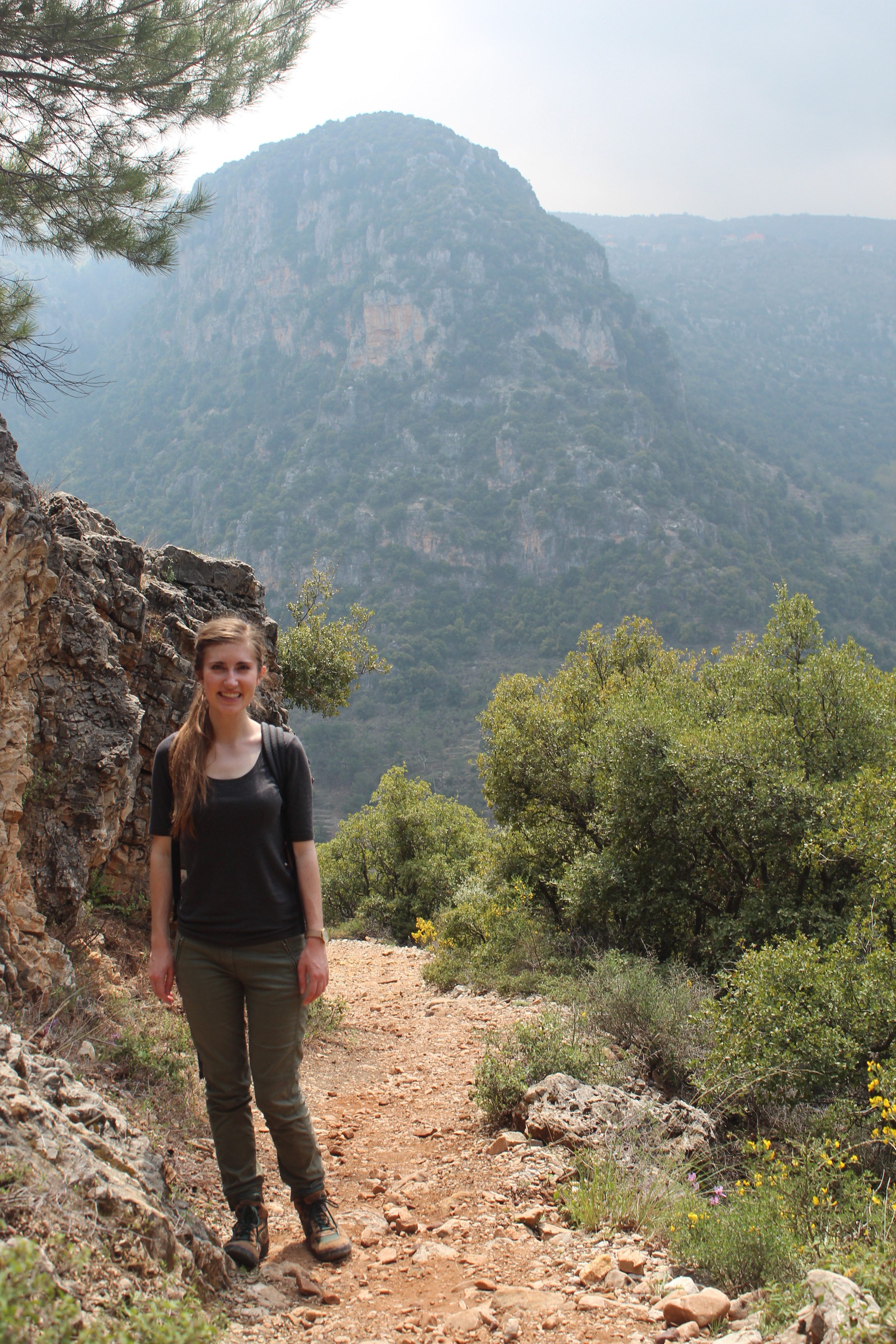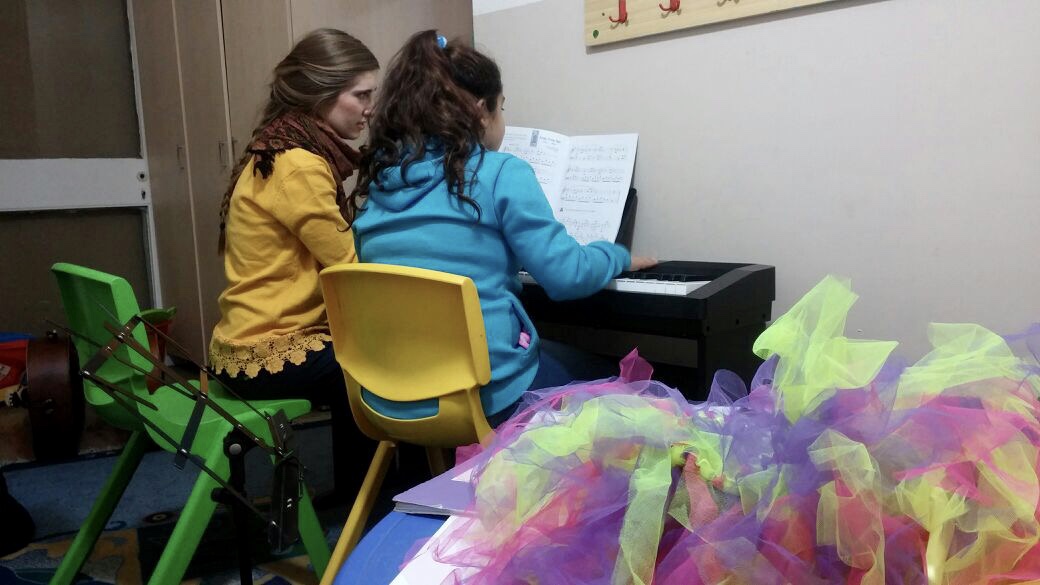
Klassen hiking in the Qadisha Valley, Lebanon. Photo © courtesy of Christina Klassen.
Christina Klassen spent one Summer in Jordan and when she left the Middle East, she knew she wanted to come back. After graduating she got in touch with a Canadian organization she knew and she was told that they needed someone to work with refugees in Lebanon. That was the opportunity she was looking for.
During her time there, she got to hear and see the struggles that Syrian refugees experience.
“I grew really close with a lot of people from that background. And it just made me extra sensitive to the struggles of what they were going through,” says Klassen. “Even in my personal interactions with both friends and the youth that I was working with I really saw how broader systems of inequality were working against settlement affecting their well- being.”
Klassen tells that she decided to apply to LERRN because she values the project’s approach and the collaborative research. She will be spending one month in Lebanon, where she will be working with graduate students from the area, led by Lebanese researchers.
“You are actually led by people from that region and the people who are most affected by local policies,” says Klassen. “I think it’s really cool that LERRN is seeking to localize that knowledge production by the people who are most affected in the global south.”
Klassen has a bachelor of arts joint honours in linguistics and psychology from McGill University. She is currently working on her master’s in social and trans-cultural psychiatry also at McGill University.
“I am looking at how the different stages of refugee migration impact maternal well-being and parenting and family relationships. I’m looking at the case of Syrian refugees who have resettled in Canada since 2015.”

Klassen teaching piano with urban-based refugee young people in the Greater Beirut area, Lebanon. Photo © courtesy of Christina Klassen.
One of the things she is looking forward to doing when she gets to Lebanon is learning about macro level research.
“I’ve done more stuff in mental health, which is often looking at individual experiences, but this is really looking at things on a policy and processes level.”
Klassen says that she is also excited to be part of youth engagement.
“It is tough for anyone who isn’t a politician or have some kind of high social ranks to have a voice in policies that affect them, let alone for youth,” says Klassen. “I was surprised that this was a research priority that had been brought up by the team in Lebanon, but I’m also really excited to see why it was brought up and to see what vision they have behind that.”

Klassen teaching English with (informal) camp-based refugee youth in the Beqaa Valley, Lebanon. Photo © courtesy of Christina Klassen.